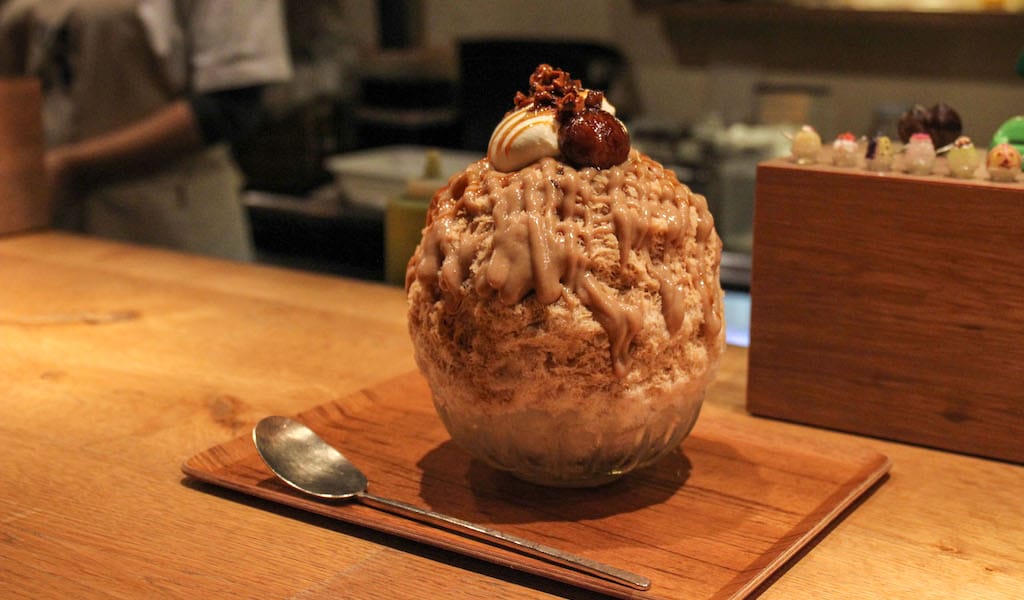The neighborhood of Kallithea in southern Athens may be quiet, but this densely populated area has seen its share of activity over the years, beginning in the early 20th century when it was largely built up by refugees from Asia Minor (modern day Turkey) and the Pontus (the coastal regions of the Black Sea).
The first waves arrived after the Greco-Turkish war (1919-1922) and later the Lausanne Treaty (1923), which called for a population exchange between Greece and Turkey. More refugees from the Soviet Union appeared in the 1930s and then a third wave came much later, in the 1990s, after the dissolution of the Soviet Union.
 Given this history, it’s no surprise that Despoina Christidou, the grandchild of Pontic Greeks expelled by Stalin to Kazakhstan in 1942, opened a restaurant celebrating Soviet cuisine in Kallithea – not only is there a built-in customer base but it’s also where she lives with her husband and two children. (Stalin oversaw the deportation of Pontic Greeks and other minorities from the northern Caucasus and the Crimea to various regions within the Soviet Union, mainly modern-day Uzbekistan and Kazakhstan, in three waves between 1942 and 1944.)
Given this history, it’s no surprise that Despoina Christidou, the grandchild of Pontic Greeks expelled by Stalin to Kazakhstan in 1942, opened a restaurant celebrating Soviet cuisine in Kallithea – not only is there a built-in customer base but it’s also where she lives with her husband and two children. (Stalin oversaw the deportation of Pontic Greeks and other minorities from the northern Caucasus and the Crimea to various regions within the Soviet Union, mainly modern-day Uzbekistan and Kazakhstan, in three waves between 1942 and 1944.)
Despoina was raised in the city of Osakorovka in Kazakhstan. When she came to Greece with her parents in 1991, close to finishing school, Despoina didn’t have any plans to cook professionally. “I always loved to cook, but never got proper training. For me cooking is a way to relax and express myself,” she tells us. Although she had studied piano and opera singing, Despoina had to focus on making ends meet after she moved to Athens, taking any job she was offered.
“It was strange at first, because in Kazakhstan we were Greeks, but in Greece we were seen as Russian,” she says. “We felt like second-class citizens for a long time.”
Once her kids were older, she decided to go into the restaurant business as a way to showcase the complexities of Soviet cooking. “People didn’t know anything about Russian cuisine and I really wanted to show them the best of the world that I grew up in,” she says.
“It was strange at first, because in Kazakhstan we were Greeks, but in Greece we were seen as Russian.”
Premiera – “It was my premiere as a cook, hence the name,” she explains with a smile on her face – opened its doors in 2010, right at the start of the Greek financial crisis. To stay afloat, she kept prices low and her parents helped out quite a bit in the beginning. Despoina, who is both owner and chef, also took on as many responsibilities as she could manage to keep hired help to a minimum. Nowadays her kids help out when they can, but they have their own careers, and she’s careful not to impose her own dreams onto them.
Set in a beautiful old house squeezed between large, ugly blocks of flats, Premiera feels appealingly aristocratic without being fancy. The cozy dining room is reminiscent of older times, with comfortable high-backed chairs, white linen tablecloths, warm lighting and stemmed glasses. In the summer, tables are set in the lush garden at the back. “I want my customers to relax and feel taken care of here,” says Despoina.
The extensive menu features an eclectic mix of Pontic Greek and Caucasian dishes, as well as traditional Russian and Soviet dishes, the former characterized by lots of river fish, game and grains, while the later incorporates a broader range of ingredients and culinary traditions. We started our meal with borscht, the famous soup popular in Russia and most of Eastern Europe. Despoina’s version surprisingly contains no beetroots, but instead a mix of vegetables, tomato puree and tender pieces of meat. It comes topped with a dollop of lard and smetana, or sour cream, and served with a slice of very dark Russian bread. “People come from all over Athens to try my borscht,” she says proudly, and we can see why: despite the heartiness of the dish, what stayed with us were the fresh, lively flavors.

We also loved the salads: a spicy shredded carrot and onion salad, a Russian salad (a different interpretation than most Russian salads in Athens, with chopped egg and smoked bacon added to the vegetables) and one called “herring under fur coat,” a quintessential Caucasian New Year’s dish. It is a layered salad where marinated herring is covered with chopped vegetables and then finished with a thick cover of mayonnaise and grated egg.
The stuffed eggplants with a spicy walnut and garlic spread called adjika (different from the fiery red pepper spread of the same name that is common in the Caucasus), which belongs to the Greek cuisine from Pontos, were a real treat. Finally, the pasta dishes need special mention, as they are handmade and extremely tasty, despite their simplicity. There are three types: pelmeni, which look like tortellini and are filled with meat; vareniki, which are half-moon shaped and have different fillings such as meat or cheese; and manti, which look like pouches and are also filled with meat. All three are steamed (as opposed to boiled) and served with a spicy tomato sauce.
There are also a variety of meat dishes in the menu, both cooked and grilled, as well as blini, Russian crepes, and desserts, but with such huge portions it was impossible to try them all. But we have a feeling we’ll be back to this relaxing Greco-Russian outpost.
 January 23, 2019 Kolobok
January 23, 2019 Kolobok
Located in the picturesque neighborhood of Santa Maria la Ribera, Kolobok – the little […] Posted in Mexico City June 13, 2023 Kooriya Peace
June 13, 2023 Kooriya Peace
It’s 9 o’clock in the morning and the narrow streets that fringe Inokashira Park are […] Posted in Tokyo September 20, 2022 Kondo Honten
September 20, 2022 Kondo Honten
Japan is well known for its variety of national dishes, as well as local specialties […] Posted in Tokyo
Published on February 18, 2019
Related stories
January 23, 2019
Mexico CityLocated in the picturesque neighborhood of Santa Maria la Ribera, Kolobok – the little Russian restaurant that could – bustles in the Mexico City dusk one recent Sunday afternoon. Patrons cluster around the warm light of the to-go window, shouting out empanada orders over the sound of a band playing nearby in the neighborhood’s Plaza…
Explore Kichijoji on our Tokyo culinary walk!
June 13, 2023
TokyoIt’s 9 o’clock in the morning and the narrow streets that fringe Inokashira Park are largely empty. This part of Kichijoji, a lively neighborhood in west Tokyo, has yet to wake up. Storefront shutters are yet to be lifted; staff inside cafés can be glimpsed preparing for the day. Yet, on one corner, a couple…
September 20, 2022
TokyoJapan is well known for its variety of national dishes, as well as local specialties claimed by individual regions and cities. Tokyo, which boasts more Michelin stars than any city in the world, is a natural nexus for these disparate eats, as well as more international fare. It may come as a surprise, then, that…



















































































